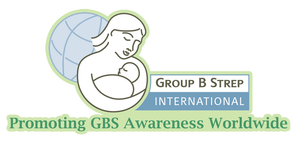Josephine was my first pregnancy and is my first child. We are Dutch and live in Amsterdam. The approach in my country to GBS is very different to the approach in the US. For instance, Dutch pregnant woman are not tested at all on GBS during pregnancy. I never even heard of GBS, even though I've read a fair share of books on pregnancy and was aware of lots of dangers for the unborn child.
When I was 41 weeks pregnant contractions started, but stopped after a few hours. My midwife told me this was normal and asked if the baby moved still enough. I told her the baby moved less, but she saw no reason to send me to the hospital. The next day I insisted on being sent to the hospital and after being put on the heart-monitor, it became very clear that something was wrong with the baby. I was induced and delivered Josephine 16 hours later. She was entirely grey, made no sound, barely moved and didn't look like a baby to me. They took her away to the couveuse (incubator), put loads of tubes in her and gave her antibiotics. The next day they told us that Josephine was probably infected with GBS and that we had to stay in the hospital until they were sure.
After a few days the test results came and she was infected with GBS, not only external (on the skin), but also internal. We had to stay 7 days in the hospital, where Josephine got antibiotics and then we could go home.
Josephine is now 5 years old and a healthy kid. She is different from her friends, her sensoric information processing is clearly different and she is very loud. I don't know whether this has to do with her having had GBS the first week of her life, or that it is merely a part of her character.
The doctors told me, that she must have gotten the infection while I was giving birth. They said that it was not possible for GBS to harm the baby when it was still in utero. The scarce information that I could find in the Dutch language about GBS backed up this story. I had immediate doubts about this statement, as she was already sick in my tummy and sick when she came out. It was when I found American information about GBS, that I realized that prenatal infection is possible.
However, GBS is silenced by Dutch healthcare providers, as they don't want too much testing. My midwife told me, that they don't want to unnecessarily worry pregnant woman. The real reason must be a financial one.
I feel very lucky that I had my gut-feeling and that I insisted on going to the hospital. If I had not insisted on that, my daughter would not have lived.
I hope this story contributes to the awareness of GBS worldwide.
— Margarethe van Dijk, Netherlands
Margarethe tells her pregnant friends.
When I was 41 weeks pregnant contractions started, but stopped after a few hours. My midwife told me this was normal and asked if the baby moved still enough. I told her the baby moved less, but she saw no reason to send me to the hospital. The next day I insisted on being sent to the hospital and after being put on the heart-monitor, it became very clear that something was wrong with the baby. I was induced and delivered Josephine 16 hours later. She was entirely grey, made no sound, barely moved and didn't look like a baby to me. They took her away to the couveuse (incubator), put loads of tubes in her and gave her antibiotics. The next day they told us that Josephine was probably infected with GBS and that we had to stay in the hospital until they were sure.
After a few days the test results came and she was infected with GBS, not only external (on the skin), but also internal. We had to stay 7 days in the hospital, where Josephine got antibiotics and then we could go home.
Josephine is now 5 years old and a healthy kid. She is different from her friends, her sensoric information processing is clearly different and she is very loud. I don't know whether this has to do with her having had GBS the first week of her life, or that it is merely a part of her character.
The doctors told me, that she must have gotten the infection while I was giving birth. They said that it was not possible for GBS to harm the baby when it was still in utero. The scarce information that I could find in the Dutch language about GBS backed up this story. I had immediate doubts about this statement, as she was already sick in my tummy and sick when she came out. It was when I found American information about GBS, that I realized that prenatal infection is possible.
However, GBS is silenced by Dutch healthcare providers, as they don't want too much testing. My midwife told me, that they don't want to unnecessarily worry pregnant woman. The real reason must be a financial one.
I feel very lucky that I had my gut-feeling and that I insisted on going to the hospital. If I had not insisted on that, my daughter would not have lived.
I hope this story contributes to the awareness of GBS worldwide.
— Margarethe van Dijk, Netherlands
Margarethe tells her pregnant friends.
To learn more about Perinatal & GBS Misconceptions, click HERE.
To learn more about the Signs & Symptoms of Preterm Labor, click HERE.
To learn more about the Signs & Symptoms of GBS Infection, click HERE.
To learn more about Why Membranes Should NOT Be Stripped, click HERE.
To learn more about How to Help Protect Your Baby from Group B Strep (GBS), click HERE.
To learn more about the Signs & Symptoms of Preterm Labor, click HERE.
To learn more about the Signs & Symptoms of GBS Infection, click HERE.
To learn more about Why Membranes Should NOT Be Stripped, click HERE.
To learn more about How to Help Protect Your Baby from Group B Strep (GBS), click HERE.

